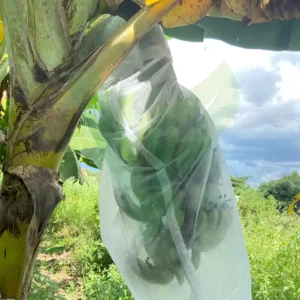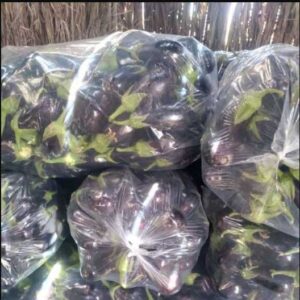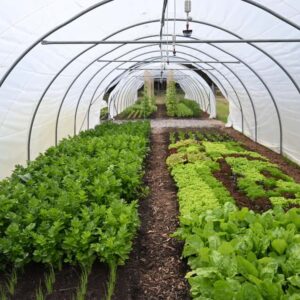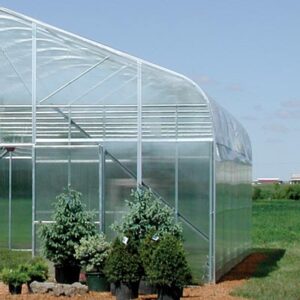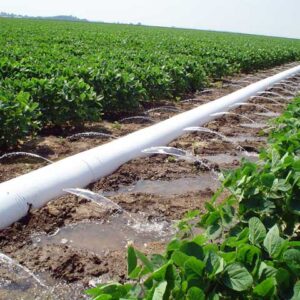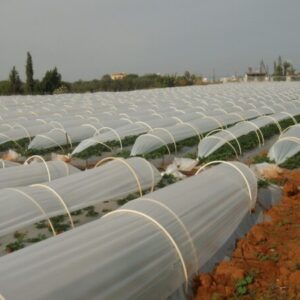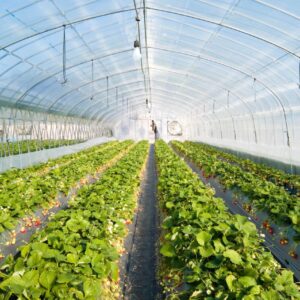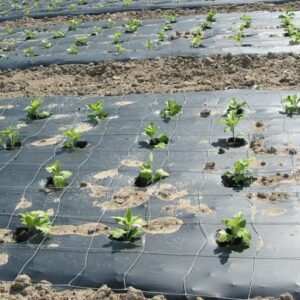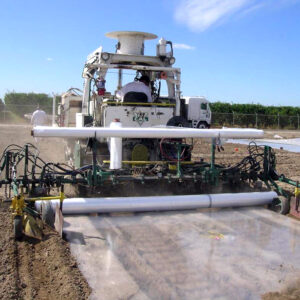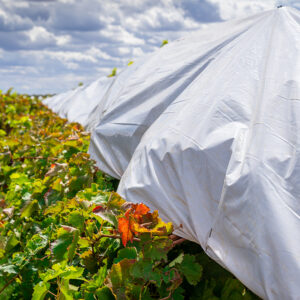Agricultural films
Leveraging advanced single and multi-layer film production technologies along with up to six-color flexographic printing, our company specializes in manufacturing a diverse array of industrial and packaging films. These films range from 10 cm to 10 meters in width and are suited for various sectors such as food and beverage, ceramics and tiles, household appliances, and construction materials.
Features of Our PE Films:
Exceptional tensile strength
Robust mechanical durability
Suitable for high-temperature applications
Available with anti-static or anti-bacterial properties to meet specific customer requirements
Our Range of Industrial Films Includes:
PE Shrink Films
Shrink Hood Films
PE Stretch Film (Wrap)
PE Rolls (Tubing/Sleeve)
Banana Bunch Cover
The Banana Bunch Cover, also known as Banana Ripening Bags or Banana Preservation Blue Sacks, is an indispensable tool in banana cultivation. Designed to optimize the growth environment, these covers significantly enhance the quality, appearance, and protection of the bananas.
Key Benefits:
- Enhanced Ripening: These covers facilitate a faster harvest by enabling more controlled and adequate ripening of bananas.
- Environmental Protection: They protect the fruit from harsh environmental elements such as wind, rain, and sun, which can adversely affect the quality.
- Physical Protection: The covers are instrumental in preventing physical damage to the banana peel, such as marks and scratches, ensuring the fruits remain aesthetically pleasing and market-ready.
- Pest Deterrence: They offer a reliable barrier against birds, insects, and pests, safeguarding the bananas from potential harm.
- Thickness: Available from 20 to 45 microns, accommodating various needs and preferences.
- Customization: Width and length can be tailored to meet specific customer specifications, ensuring a perfect fit for any banana cultivation setup.
- Color: The distinctive blue hue not only identifies these covers but also plays a crucial role in optimal light filtration, which is vital for the ripening process.
- Packaging Options: Typically offered in rolls wrapped with PE film, with an inner core diameter of 76 mm, and optionally reinforced with plastic lids at both ends. For those preferring sack formats, the covers are bulk packaged in 10 or 20kg PE bags, with flexibility in packaging customization to meet diverse requirements.
Cucurbits Bag
Product Overview
Product Name: Cucurbits Bag Other Names: Potato Bag, Cucumber Bag, etc.Applications
Farmers and gardeners commonly use Cucurbits Bags for packaging and transporting various types of cucurbits and vegetables, including:- Cucumbers
- Eggplants
- Carrots
- Potatoes
- Other similar produce
Key Features
- High Tensile Strength: Ensures the bags can carry heavy loads, typically between 20 to 30 kg, without tearing.
- High Durability: Made from high-quality materials and properly sewn to withstand rough handling and transport.
- Easily Transported: Lightweight and easy to carry, making them ideal for both small-scale and large-scale operations.
- Recyclable: Made from materials that can be recycled, supporting environmental sustainability.
- Custom Printing: Option to print names and logos on the bag for branding purposes.
Specifications
| Attribute | Specification |
|---|---|
| Width | Typically 50 to 90 cm (customizable based on customer requests) |
| Length | Typically 90 to 110 cm (customizable based on customer requests) |
| Thickness | Typically 150 to 250 microns (customizable based on customer requests) |
| Color | Transparent (or customizable based on customer requests) |
| Custom printing available based on customer requests | |
| Perforation | Usually six holes in two rows on each side (customizable based on customer requests) |
| Handle | Can be produced in the form of T-Shirt bags if required by the customer |
| Packaging | Packed in 10 or 20 kg PE bags, in bulk (or customizable based on customer requests) |
Benefits
- Convenience: Easy to use for packaging and transporting various types of cucurbits and vegetables.
- Visibility: Transparent material allows for quick identification of contents.
- Strength: Designed to handle heavy weights and ensure the safety of the produce.
- Versatility: Suitable for a wide range of vegetables, making them a flexible packaging solution.
- Environmental Responsibility: Recyclable materials contribute to sustainable packaging practices.
Conclusion
Cucurbits Bags provide a practical and efficient solution for packaging and transporting various vegetables. With high tensile strength, durability, and customizable options, these bags meet the diverse needs of farmers, gardeners, and retailers. Their transparency and ability to be custom printed make them an ideal choice for branding and easy identification. Whether for small-scale use or large-scale operations, these bags ensure the safe and efficient handling of produce.Greenhouse Films
The Role of Greenhouse Films in Plant Protection
Greenhouses offer a controlled environment that is vital for optimal plant growth, acting as a barrier against unpredictable external conditions. The films used to cover these structures are critical components of this protective ecosystem. Material Composition: Greenhouse films are typically made from a sophisticated blend of polymers including Low-Density Polyethylene (LDPE), High-Density Polyethylene (HDPE), Linear Low-Density Polyethylene (LLDPE), and a mix of functional additives. Each material is chosen for its specific properties that contribute to the overall functionality of the film:- LDPE provides flexibility and durability.
- HDPE offers strength and resistance to punctures and tears.
- LLDPE enhances tensile strength and elongation.
- UV Stabilizers extend the life of the film by protecting it from ultraviolet light degradation.
- Anti-drip and Anti-fog additives reduce condensation buildup, which can lead to disease and light obstruction.
- Infrared blockers help to maintain a more stable temperature within the greenhouse by retaining heat during cooler periods.
- Light diffusion agents ensure that light is evenly distributed, reaching all parts of the plant canopy, which is essential for uniform growth.
- Optimal Plant Growth: Proper film selection directly impacts the microclimate around the plants, affecting their growth rate and health.
- Protection from the Elements: High-quality greenhouse films protect plants from excessive UV light, harsh weather, and pests.
- Efficiency and Sustainability: Advanced films can reduce the need for chemical inputs like pesticides and minimize water use through better humidity control.
Greenhouse Thermal Sheet
Overview of Greenhouse Thermal Sheets
Greenhouse thermal sheets are designed to optimize the growing environment within greenhouses, making them an essential component for successful agricultural operations. These sheets play a vital role in energy conservation and climate control.Key Functions and Benefits
Heat Retention- Solar Energy Trapping: These sheets capture and retain solar energy during the day, ensuring that the greenhouse remains warm even after the sun sets. This capability is critical for maintaining an optimal growing temperature throughout the night.
- High-Quality Materials: PlasticKar’s greenhouse thermal sheets are manufactured using premium raw materials and carefully selected additives, enhancing both performance and durability.
- Enhanced Sheet Performance: The incorporation of these high-quality materials ensures that the sheets not only last longer but also perform better in critical functions such as heat retention and durability against environmental stresses.
- Infrared Radiation Absorption: By absorbing infrared radiation, these films help minimize temperature fluctuations that typically occur between day and night.
- Stable Growing Environment: This temperature stability is crucial for plant growth, as it prevents stress and promotes a more consistent developmental environment.
Conclusion
Greenhouse Thermal Sheets from PlasticKar provide a robust solution for managing the microclimate within greenhouses. By enhancing heat retention and reducing temperature variability, these sheets ensure that plants can thrive in an environment that mimics natural conditions as closely as possible. The result is healthier plants and more efficient greenhouse operations, making these sheets a smart investment for any agricultural business focused on sustainability and productivity.Low Tunnel Film
Understanding Low Tunnel Films in Agriculture
Low tunnel films are instrumental in the successful cultivation of short-duration crops such as watermelons, melons, and strawberries. Here are the essential aspects of these films:Structure and Purpose
- Semi-Circular Design: The unique semi-circular shape of low tunnels maximizes sunlight absorption, providing ample warmth and light crucial for plant growth.
- Crop Protection: These films act as a protective barrier, shielding crops from environmental elements like harsh weather and pests. This protection extends to minimizing the impact of heavy rain, wind, and even insects.
- Temperature Regulation: Low tunnels moderate the thermal environment, reducing the fluctuation between day and night temperatures. This stability creates an optimal microclimate that promotes healthier and faster plant development.
- Water Conservation: By reducing evaporation rates, low tunnel films help conserve water. This is particularly beneficial in arid regions or in situations where water conservation is a priority.
Key Benefits
- Enhanced Crop Yield: By optimizing growing conditions, low tunnel films contribute to increased productivity and higher quality yields.
- Resilience Against Climate Variability: These films provide a controlled environment that mitigates the risks posed by unpredictable weather, ensuring crop consistency across seasons.
- Resource Efficiency: The use of low tunnels improves the efficiency of resource use in agriculture, particularly in terms of water and land use.
Conclusion
Choosing the right low tunnel film is crucial for enhancing crop yield and resilience. With their ability to create and maintain the ideal growing conditions, these films are an essential tool for farmers aiming to optimize their agricultural outputs while protecting their crops from environmental challenges.Mulch Film
Overview of Plastic Mulch Film
Plastic mulch film, primarily composed of polyethylene, is a critical tool in modern agricultural practices. Its various properties contribute significantly to improved crop health and yield. Here are the key benefits:Key Features
Weed Prevention- Barrier Effect: Serves as a physical barrier, effectively suppressing weed growth and reducing competition for essential nutrients and water.
- Heat Retention: The film helps maintain an optimal soil temperature, fostering better plant growth.
- Cold Protection: Provides a shield against sudden temperature drops during chilly nights, protecting sensitive crops.
- Evaporation Reduction: By covering the soil, plastic mulch minimizes water loss due to evaporation, making water usage more efficient.
- Moisture Retention: Ensures that soil remains consistently moist, directly benefiting plant roots and overall health.
- Accelerated Growth: Certain types of mulch are designed to enhance plant development and increase yield.
- Pest Control: Some films are treated to deter insects and pests, contributing to healthier plant growth.
- Fruit Protection: Acts as insulation to prevent fruits from touching the soil, thereby reducing the risks of decay from soil-borne diseases, molds, and fungi.
Impact on Agriculture
Plastic mulch film offers a multifaceted approach to improving agricultural efficiency. By optimizing growing conditions, it not only enhances crop quality but also contributes to sustainable farming practices by reducing the need for water and herbicides. This tool is indispensable for farmers aiming to increase productivity while managing resources effectively.Vineyard Cover
Plastic Films for Vineyard Covering are essential tools for viticulture, crafted from regular or thermal polyethylene (PE) to offer robust protection and environmental control for grapevines. These covers are expertly designed to address several critical aspects of vine management:
Primary Functions
- Freeze Protection: Provides a protective barrier against frost and freezing conditions during winter, safeguarding the vine's vitality and fruit set.
- Optimized Light Transmittance: Ensures that the necessary light reaches the vines, which is crucial for photosynthesis and healthy growth throughout the seasons.
- Minimized Heat Loss: Helps to retain ambient warmth during cold nights, stabilizing temperature fluctuations that can stress the vines.
Features and Benefits
- Material Varieties: Available in both regular and thermal PE, each option tailored to specific climatic needs and vineyard conditions.
- Durability: Crafted to withstand the elements, ensuring long-lasting use across various weather conditions.
- Ease of Use: These covers are designed for straightforward application and removal, allowing for efficient seasonal management.
- Environmental Efficiency: By maintaining more consistent microclimatic conditions around the grapevines, these covers help in reducing the need for chemical treatments and energy consumption related to heating.

